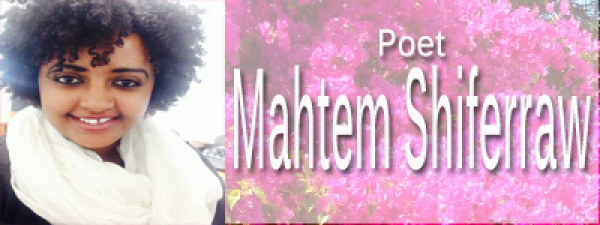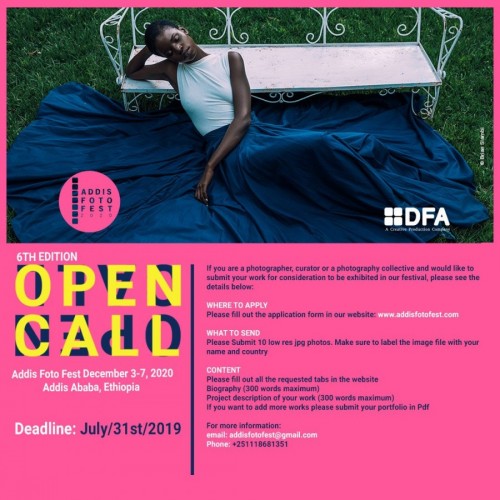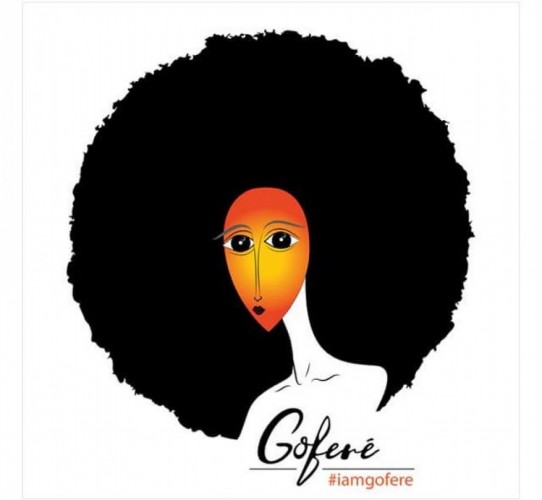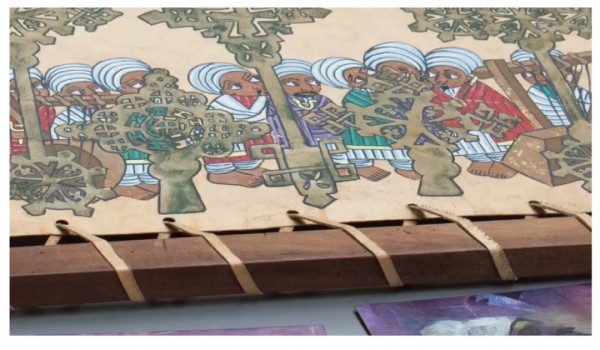Fuchsia By Ethiopian Poet Mahtem Shiferraw
 |
Fuchsia by Mahtem Shiferraw
It’s a deep purple thought;
once it unraveled prematurely
and its tail broken, leaving a faint trail
of rummaging words.
When I was little, growing up in
Addis Ababa, my father bought
the fattest sheep from street vendors
for the holidays. He would
pull its curled horns, part the wet
rubber lips to check the sharpness
of its teeth, grabbed its tail, separated
the hairs in the thick bed of fur. Later, he will
bring it home, unsuspecting creature, tie
it to a pole in the garden, feed it the greenest
grass until its sides are swollen and heavy. It will be
slaughtered in the living room, kitchen knife
cutting in a precise angle through its neck, the
blood splattered on the blades of grass gently laid
by my mother on the cement floor, one last
comfort before its end. Come afternoon, it will
hang upside down, viscous wet smell emanating from its
insides, and knife slashing between slabs of organs,
all to be eaten differently—bones of the rib cage
deep fried, bleeding texture of kidneys minced into
bite-sized shapes and soaked in onion and pepper oil,
small blades of the stomach dutifully cut into long
strips, and mashed with spiced butter and berbere. Even
the skin, bloodying fur, will be sold to passing vendors, its
head given away to neighbors who will use it for soup.
In September, the street shoulders of Addis Ababa
flood with yellow daisies, creating patches of sunlight
in rainy days. But every so often, a mulberry daisy is
spotted, its head barbarous in a field of gold, dirty
purple in its becoming.
The first time I saw a plum, it was lying in a pool
of swollen mangoes and papayas at a local grocery store,
and I held it in my hand, wanting to pierce the luminous
nakedness of the skin with my nails and teeth.
If you ask how to say “burgundy” in Tigrinya, you will be
told, it’s the color of sheep-blood, without the musty smell
of death attached to it. It’s also the color of my hair, dipped
in fire. And the greasy texture of clotted arteries, and the folding
skin of pineapple lilies, and the sagging insides of decaying roses,
and the butterfly leaves of blooming perennials, and spongy
strawberries drowning in wine.
Right before dusk, when the skies are incised with a depression of
shades, oranges escaping from one end into the mouth of the
horizon, freckled clouds unclog suddenly, giving shape to the
pelvis of the sky, its sheep-blood visible only for a second, then
bursting into flames of golden shadows. In days like these, when
the sun’s tears are fat and swollen, descending obliquely into the
city, we say somewhere a hyena is giving birth, and perhaps it is.
And then, you ask, what is fuchsia—and there’s a faint smile, a
sudden remembrance, an afterthought in hiding, forgotten smells
of wild flowers and days spent in hiding, in disarray. And mulberry
daisies carried by phosphorescent winds into the warm skin of sleeping
bodies; moments spent between here and there, pockets of emptiness—
without sound, without reckoning.
Ethiopian-American poet Mahtem Shiferraw grew up in Eritrea and Ethiopia, is a poet, visual artist, and cultural activist. Mahtem was named the winner of the African Poetry Book Fund’s 2015 Sillerman First Book Prize for African Poets earlier this year for her manuscript Fuchsia.
The title of the manuscript is from the poem What is Fuchsia, which will be published in the upcoming issue of Callaloo: A Journal of African Diaspora Arts and Letters. As well as the University of Nebraska Press & Amalion Press in Senegal in 2016.
Mahtem shares her creative process, inspirations, and life as a literary journal editor in an interview with African Poetry Book Fund.













